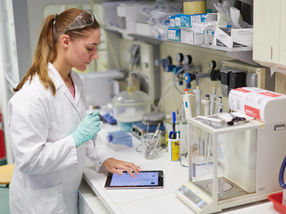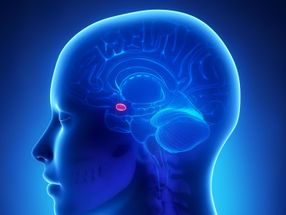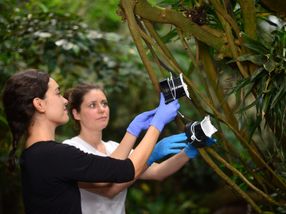Food research without the use of animal tests
Wageningen University & Research wants to drastically reduce the number of animals needed in food research and actively works on alternative methods. Currently we are able to substitute 80% of all animal tests in food research. It is our goal to turn this into 100%.
We operate on the basic principle of no animal testing in research unless there is no alternative option. Animal tests have limited predictability, are expensive and give rise to ethical concerns. As a result, we have been working on different methods and models that mimic the actions of cells, organs and the digestive system for several years. This allows us to reduce, refine and replace animal tests in food research (the three Rs).
Additional time for preliminary research
Our researchers invest additional time in preliminary research in cases where legislation requires animal testing and existing alternatives are not yet reliable enough. We navigate this middle ground for research into the safety of products derived from genetically modified organisms, for example, or into the long-term effects of possible carcinogens. During the preliminary research we will determine which doses of a substance need to be tested and whether we need to test young, old, male or female animals. This keeps the number of animal tests to a minimum.
Smart combinations
Wageningen University & Research is developing a wide variety of alternative methods and models for research into the health, safety and digestibility of food. By making smart combinations we directly help our clients. We determine the exact composition of a food product and use computer models to investigate if the components it contains resemble known toxic substances or allergens. This enables us to predict the effects of these components. In addition, we use laboratory models that mimic the digestion of food and nutrients in the mouth, stomach and intestines. The absorption and effects are measured using cultured human cells and artificial tissues. These mini-organs are known as organoids or organs-on-a-chip. These include intestinal cells through which we run liquids just as would happen in the real intestine. We also work with heart, liver and nerve cells. For measurements using cells and tissues we employ accurate and sensitive techniques that provide us with information at the cellular level and shows, for example, which genes are switched on or off, which proteins are produced and how much degradation product is released.
From mussels to dietary fibres
Wageningen University & Research already applies this combined approach to detect the toxins produced by algae in mussels and other shellfish and crustaceans. This means that an EU-mandatory animal test, which required 300,000 rodents annually, is now replaced by a chemical test. We research botulism in canned foods using a similar method and investigate the origins and effects of substances that cause hormonal imbalances in humans. Other examples include studies investigating the digestion and absorption of proteins and peptides in the body and the effects of food on the intestinal wall. We also use mini-organs to research the effects of natural flavours derived from vegetables on gastrointestinal hormone secretion. This results in an observation of the influence of such substances on blood sugar levels. The effects of dietary fibres on the immune system are tested using the blood of human volunteers.
Towards 100% animal free testing
The Netherlands wants to be the global leader in the transition to animal free testing. Most animal tests in the Netherlands will be replaced by innovative research by 2025. Wageningen University & Research makes a significant contribution to this development. We are currently able to substitute 80% of all animal tests in food research by making smart methodical combinations. If it were up to us, this would increase to 100%. In the next few years, Wageningen University & Research will actively develop alternative methods to show government, the business community and civil society organisations that our approach works, making animal testing in food research a thing of the past.
Other news from the department science

Get the food & beverage industry in your inbox
From now on, don't miss a thing: Our newsletter for the food & beverage sector brings you up to date every Tuesday and Thursday. The latest industry news, product highlights and innovations - compact and easy to understand in your inbox. Researched by us so you don't have to.
























































